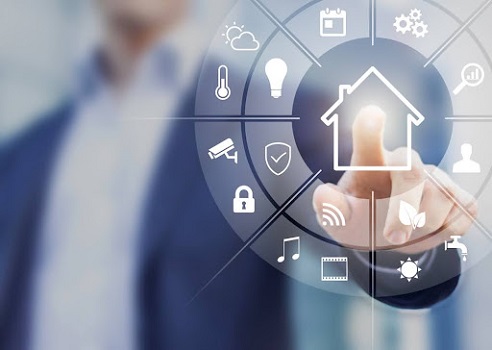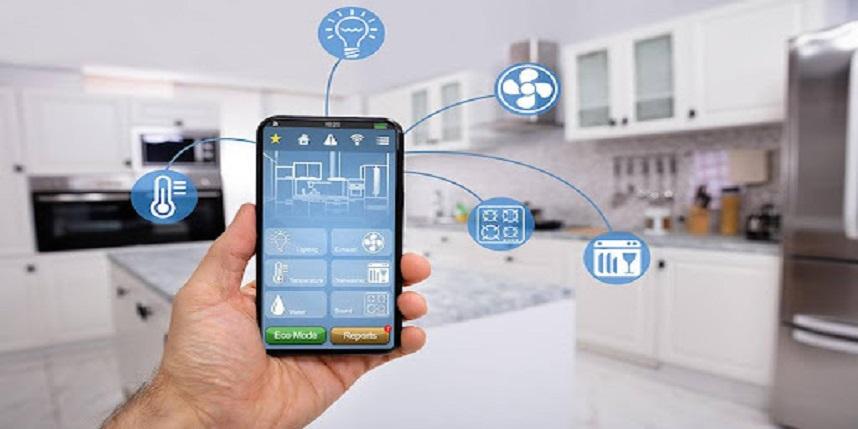Protecting Smart Home Devices: How VPNs Enhance Security in Property Automation Systems
09 Feb 2024
The mainstream adoption of Smart Home technology, powered by the Internet of Things (IoT), has simplified our daily routines significantly. Today's homes, equipped with these intelligent devices, can control almost any appliance that runs on electricity from a distance, thanks to internet connectivity.
Consider this: there's no longer a need to intervene in your morning coffee ritual manually. With a smart coffeemaker programmed the night before, you're greeted with a freshly prepared cup of java each day.
Impressed by the convenience? Yet, with the swift rise in IoT device usage, we're also seeing a surge in vulnerabilities—a playground for hackers.
Cybersecurity has become a critical conversation. 24,4 billion IoT gadgets, from coffee machines to smart refrigerators, collect vast travesties of data, tempting cybercriminals with a potentially lucrative attack vector. Thus, securing your smart home network with a reliable VPN is more crucial than ever.
VPN in Security in Property Automation Systems
#1 Surveillance Risks
The landscape of modern device connectivity brings both convenience and privacy implications. IoT devices, omnipresent in our daily environments, may collect comprehensive data about our activities. Consider the example of home security cameras; these can become targets for cyber intrusions, resulting in unwelcome surveillance.
Chilling instances involve baby monitors — breaches here have led to third-party interactions with children right in their rooms. We're also facing vulnerabilities due to the ubiquity of webcams embedded in our phones and computers, which those with malicious intent can easily access.
Continuous innovation introduces gadgets like Amazon Echo, Apple HomePod, and Google Home; our personal assistant devices are designed for convenience. Ironically, we scatter these devices at multiple locations within our dwellings. They come equipped with cameras and microphones for voice commands, which we trust to remain inactive until summoned.
Contrary to our beliefs, emerging evidence suggests that these devices may still operate without our activation. Consequently, this might mean that we're voluntarily contributing to our observation by marketers, governmental agencies, and hackers, potentially even during our most private moments.
#2 Security Risks
The thought of a hacker targeting your coffee machine might sound unlikely. Yet, the risk becomes apparent when your car, home security system, and other smart devices all share one network. Various cars have already been stolen through cyber-attacks on their computing systems. Similarly, high-tech home security setups have been compromised in similar ways.
A breach in a minor gadget, like your smart doorbell, can expose your entire online footprint. Online transactions, shopping patterns, and personal data could all be at stake.
Our interconnected lifestyle invites more than convenience; cybersecurity breaches are a genuine concern. This means that IoT security must be comprehensive and capable of protecting all devices.
An effective strategy for protecting smart home devices is to use a VPN with strong encryption. You can read more about what encryption and VPN encryption types in a separate article. You must understand that safeguarding online is crucial when even the smallest device is hackable.
#3 Fighting Constant Monitoring
Adopting IoT devices and transforming our living spaces into smart homes involves a significant level of trust towards the device makers- but at what cost? The reality is that user data has become a goldmine for corporations.
Many IoT device manufacturers view their products as convenient tools for harvesting such data, with a not-so-hidden agenda. Often, they either sell this personal information to third-party entities or harness it to bolster the marketing of their goods and services.
When you purchase one of these devices, you might inadvertently agree to allow these practices by accepting the terms hidden in the fine print. Beyond that, failing to secure these devices means you're not only giving manufacturers open access but potentially exposing yourself to breaches by any third parties able to exploit device vulnerabilities.
At the same time, you can download a free VPN and protect yourself from surveillance by large companies. This way, you can protect your privacy and confidentiality.
#4 Surveillance Protection

The proliferation of IoT devices introduces serious privacy concerns. For instance, smart devices could potentially monitor our everyday interactions, ranging from baby monitors to indoor and outdoor surveillance cameras. Hacking, a grim reality of our digital age, could allow unwelcome eyes to watch our private moments.
Standard webcams in smartphones, tablets, and laptops are also vulnerable. The sobering truth? Gaining access to these cameras is startlingly simple.
Another modern convenience comes from always-on personal assistant devices from major tech companies like Amazon, Apple, and Google. We place these devices throughout our homes for convenience, unknowingly inviting potential risks by installing cameras and microphones in every room. Although we trust these devices to activate only upon our command, mounting evidence suggests otherwise.
Final Thoughts
Navigating online spaces, engaging in digital transactions or integrating smart devices into your home necessitates using a VPN. Understanding VPN usage amplifies security for your connected gadgets. A VPN acts as a shield for personal data, mitigating risks like identity theft and fraud and ensuring the safety of your family members.
The modern home teems with potentially vulnerable gadgets. The threats range from severe – such as breaches in security infrastructure or unauthorized camera access – to less critical issues like your DVR unintentionally hosting malware that may disrupt internet services. Establishing a robust defence mechanism with a premium VPN client can offer effective protection and peace of mind.
Categorised in: All News












